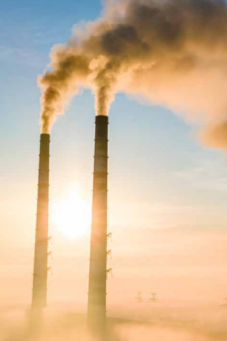The journey towards developing nuclear energy in Kenya to power a digitised economy

Energy is vital for the economic progress of a country. It has a significant impact on all aspects of development, ranging from environment, social, economic, agriculture, population and livelihood. The COVID-19 pandemic also served to catalyse digitalisation of all aspects of economic activities. .
Kenya’s primary source of energy is obtained from hydro power and fossil fuel. According to a 2019 study, the production energy mix includes 52.1% of hydro and 32.5% of fossil fuel. However, the energy demands of a growing and increasingly digitised population has accelerated Kenya’s pursuit of a more sustainable and reliable alternative to fossil fuels in the form of nuclear energy.
The Kenya Nuclear Power and Energy Agency (NuPEA), formerly Kenya Nuclear Electricity Board (KNEB), is mandated to undertake preparations for the development of a nuclear power programme. The organisation was formed in 2010 as the Nuclear Electricity Project Committee (NEPC). It was transformed into a parastatal under the State Corporations Act, as the KNEB in November 2012. Its mandate is to realise Kenya’s Vision 2030 by fast-tracking the development of nuclear power in order to enhance the production of affordable and reliable electricity.
Despite Kenya’s Budget for the FY 2022/23 focused on accelerating economic recovery, Kshs 2 billion has been allocated for the development of Nuclear Energy, demonstrating the country’s commitment towards eventually achieving nuclear energy proliferation by 2036. According to NuPEA, Kenya plans to begin construction of a 1,000 megawatt nuclear power plant in 2030, worth Kshs 500 billion.
According to the International Atomic Energy Agency (IAEA) review team, 2021, Kenya has made progress in implementing recommendations for nuclear infrastructure development. The Agency seeks to accelerate and enlarge the contribution of atomic energy to peace, health and prosperity throughout the world. IAEA review team noted progress in areas including:
- Kenya has developed the National Nuclear Policy and the National Policy and Strategy for Safety to enable the Government to make an informed decision on whether to introduce nuclear power.
- Kenya has enacted a national nuclear law and established a regulatory body with clear responsibilities for safety, security and safeguards.
- The Government has completed an assessment of the national legal framework and identified other laws needing review.
- The Government has enhanced the coordination among its key stakeholders in the development of its nuclear power program.
However, the review team has noted the need for development of a nuclear leadership programme and the ratification of key international conventions in the area of nuclear safety.
Although we are a decade and some away from nuclear energy proliferation, emerging technologies such as electric vehicles, digital currencies, the metaverse, and the rise of smart cities will further increase Kenya’s energy demands. The Kenyan government should seek to strategically fund and optimise the use of nuclear energy to meet the needs of a country soon to enter the fourth industrial revolution.

